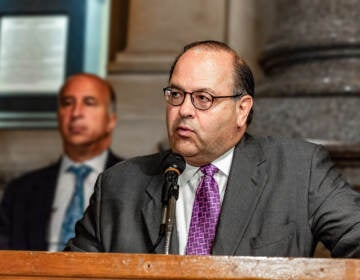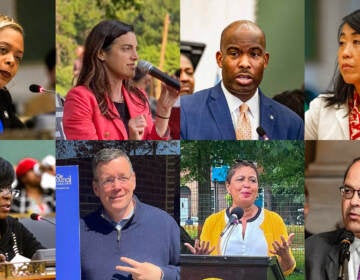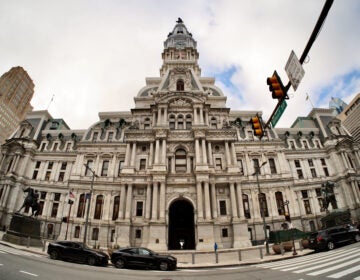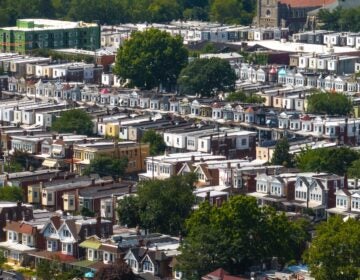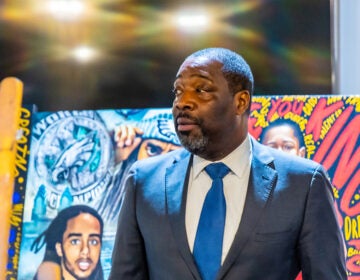Philly council members are starting to resign to run for mayor. Here’s what that means for your local representation
The city could have to fill as many as six seats as council members step down to run for mayor.
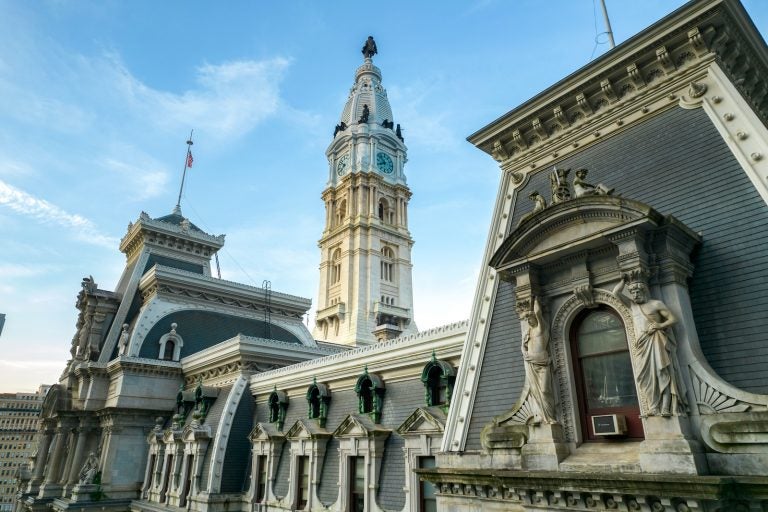
A closeup of Philadelphia City Hall. (Mark Henninger/Imagic Digital)
In the coming months, as many as six Philadelphia council members could resign to begin exploring bids for mayor. That means lots of Philly voters could be picking new local representation as soon as November.
Council elections aren’t scheduled until 2023, but Philadelphia’s charter requires that any city elected official seeking another office resign from their current post first. Councilmember Allan Domb, who represents the city at-large, this week became the first of the rumored contenders to step down early, saying he’s embarking on a “listening tour” to prepare for a mayoral run.
It’s up to Council President Darrell Clarke to pick a date for Domb — and eventually, other members with mayoral ambitions — to be replaced in a special election. Joe Grace, a spokesman for Clarke, said there has been “no decision yet” on when that will happen.
The charter says the council president must choose an election date at least 30 days in the future, and puts no limit on how long the president can wait to fill a seat. Usually, special elections happen concurrently with an already-scheduled future election — a practice that saves time and money for election administrators and can also increase turnout.
Pat Christmas, policy director at the good government group Committee of Seventy, noted that there are other restrictions on these election dates beyond those laid out in the charter.
“Counties have to start processing mail-in applications at least 50 days ahead of the election,” he said. “The 30-day timeline we have in the charter for calling these special elections isn’t actually the timeline. And I’m sure that in this case, the city commissioners are working very quickly to try to figure out what their hard stop will be.”
Nick Custodio, a spokesman for the city commissioners, said the office is referring all questions about council special elections to the council president’s office.
Christmas said for now, he thinks the window for those elections to be held in November is still open and Domb, at least, could potentially be replaced this year.
The other members who have said they’re interested in running for mayor, or who are rumored to be interested, are 8th District Councilmember Cindy Bass, at-large member Derek Green, at-large member Helen Gym, 9th District Councilmember Cherelle Parker, and 7th District Councilmember Maria Quiñones-Sánchez.
City Controller Rebecca Rhynhart has also confirmed she’s considering a run. Her term wouldn’t end until 2025, so her position would require a special election as well.
The process for replacing a controller is significantly different from replacing a council member. The city elections code doesn’t explain it in detail, but Democratic elections lawyer Adam Bonin said two instances of controllers resigning to run for other offices in the 1980s provide a procedural blueprint. If Rhynhart resigns, the mayor will appoint one of the office’s current deputies to be interim controller. Then, the city will hold a primary and general election to officially fill the position in the next odd election year — 2023.
Brown’s Super Stores CEO Jeff Brown is also rumored to be interested in running for mayor.
All these potential candidates would be seeking the Democratic nomination for mayor, and would be virtually guaranteed to win the general election against a Republican in the heavily Democratic city.
The decision about when to resign and begin a mayoral campaign is “all political,” Christmas said, and right now council members are likely trying to figure out what will give them the biggest advantage in a crowded field. That could mean some council seats get filled by November and others stay vacant until next May’s primary, depending on how long members wait to resign.
Committee of Seventy’s official position is that seats should be filled as soon as possible so that Philadelphians are well represented. And Christmas added, the group is also planning to keep a close watch on the candidates who eventually emerge to compete in these special elections.
Political parties in Pennsylvania have broad discretion to select special election nominees. In Philly, city party committees pick at-large candidates, and ward leaders generally pick district candidates. Because Democrats dominate Philadelphia, whoever the party leaders select will very likely win the seat.
“From the public side, there’s no guarantee of transparency or public debate or discussion of any sort about who’s going to wind up on the ballot for a special election,” Christmas said. “This is what we should pay close attention to.”
WHYY is your source for fact-based, in-depth journalism and information. As a nonprofit organization, we rely on financial support from readers like you. Please give today.



